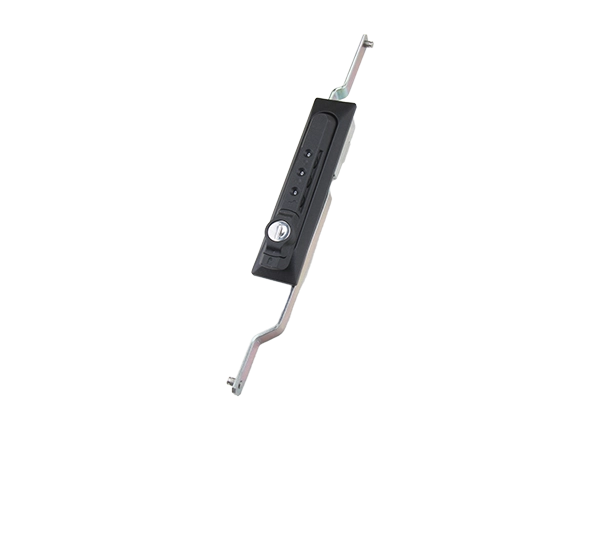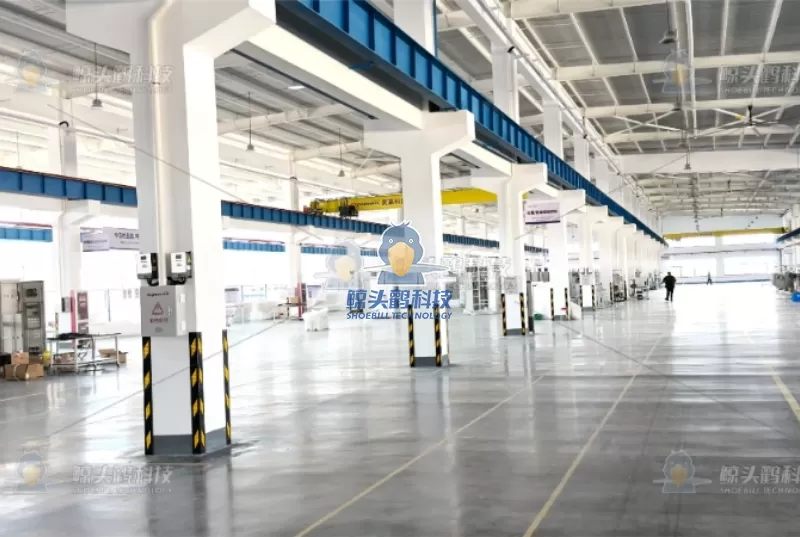In today's highly automated industrial environment, the security of equipment and materials is paramount. As the first line of defense, industrial cabinet locks play a vital role in safeguarding these assets. These locks not only prevent unauthorized access but are also designed to withstand harsh environments, ensuring the safe and efficient operation of production and management systems. With advancements in technology, industrial cabinet locks have evolved from traditional mechanical systems to modern electronic and smart locks, addressing the growing demand for safety, efficiency, and convenience in industrial settings. This article shengjiu explores the structural characteristics of industrial cabinet locks and their widespread applications in various industrial scenarios.

Structural Characteristics of Industrial Cabinet Locks
1. Structural Design: High Strength and Stability
The structural design of industrial cabinet locks is crucial, as they must withstand various stresses and pressures in industrial environments. Unlike ordinary household locks, industrial cabinet locks are designed to maintain stability and reliability under high-frequency use and potential tampering. Typically made of solid metal, the core structure ensures that the lock cylinder and lock bolt function properly even under frequent operation. Additionally, the outer casing of these locks is often thickened to increase strength and resist external damage.The lock core is a critical component, directly affecting the safety of the cabinet lock. Traditional mechanical locks rely on intricate pin or bolt mechanisms to prevent forced entry. Modern electronic cabinet locks, however, use motors or electromagnets in combination with password inputs or biometric technologies, further enhancing security and convenience. To ensure long-term stability, industrial cabinet locks are also designed with shockproof, dustproof, and waterproof features, especially for equipment cabinets exposed to harsh conditions, such as outdoor power or communication cabinets.
2. Anti-Tampering and Anti-Theft Design
Industrial cabinet locks must possess strong anti-tampering capabilities to prevent illegal entry or vandalism. In mechanical locks, anti-pry features include thickened lock bodies, concealed bolt positions, and metal shields around the lock core. Some industrial locks also utilize multi-point locking systems, where multiple points on the cabinet door are secured simultaneously, significantly improving resistance to forced entry.For electronic locks, preventing technical tampering is also crucial. Modern electronic cabinet locks are equipped with complex encryption algorithms and multiple authentication methods, such as passwords, fingerprints, and keycards. Even if the lock body is physically damaged, unauthorized individuals cannot unlock it through technical means. Moreover, these locks often feature alarm systems that alert security personnel when abnormal activity is detected, such as repeated incorrect password attempts or tampering. Smart locks can integrate with video surveillance and alarm systems, capturing any unauthorized attempts and sending real-time alerts to security personnel.
Wide Applications of Industrial Cabinet Locks Across Industries
1. Application in Manufacturing
Industrial cabinet locks are widely used in manufacturing, particularly for equipment cabinets, tool storage, and control panels. In modern production environments, the security of industrial equipment and the reliability of operations directly affect efficiency and product quality. Industrial locks not only protect sensitive equipment from unauthorized access but also ensure the safe operation of machinery under frequent use, thanks to their high-strength designs and intelligent features.For instance, in the automotive manufacturing industry, robot operating cabinets require high levels of security. These systems often need regular maintenance or operational adjustments, and electronic cabinet locks allow authorized personnel to access the equipment while recording each operation's time and user identity. This tracking system improves transparency and management efficiency in the factory.
2. Application in Warehousing and Logistics
In warehousing and logistics, industrial cabinet locks are crucial for securing stored materials and goods during transportation. Modern warehouses and logistics hubs store large quantities of products, demanding high levels of security. Industrial locks prevent unauthorized access to storage cabinets and safeguard goods during transit.Electronic locks with remote control and real-time monitoring capabilities are particularly valuable in logistics. In large warehouses, managers can monitor each container in real-time to detect any abnormal unlocking events. In emergencies, remote unlocking allows for quick access, reducing delays in management processes. In industries such as cold-chain logistics or hazardous materials transportation, combining industrial locks with temperature monitoring systems ensures the safety of high-value or perishable goods.
3. Application in the Power and Communications Industries
The safety of equipment in the power and communications industries is critical to the operation of social infrastructure. Industrial cabinet locks used in power control cabinets and communication base station equipment must be able to withstand harsh environments and potential sabotage, especially as these facilities are often located in remote areas.Explosion-proof, dustproof, and waterproof industrial locks are common in such applications. Furthermore, electronic locks integrated with monitoring systems allow managers to view the equipment's security status remotely, enabling early detection of potential threats. Some advanced locks also feature automatic alarm systems that alert relevant personnel to illegal tampering or abnormal activities, helping prevent further damage to the equipment.
4. Special Applications in the Medical Industry
In the medical industry, cabinet locks are primarily used to secure medicines, medical devices, and sensitive information. Medicine cabinets, surgical instrument storage, and patient file cabinets require strict access control, allowing only authorized medical personnel to access sensitive resources.Electronic industrial cabinet locks play a crucial role in this area, using fingerprint recognition, password input, or keycard verification to manage access to drugs and equipment. These systems can also record details of each access, helping prevent human error and misuse. In large hospitals, cabinet lock systems are often integrated with hospital management systems, allowing real-time monitoring of drug usage to ensure that all actions are traceable. Additionally, locks on special equipment cabinets prevent unauthorized access to expensive or critical medical devices, further enhancing operational security.
As a core component of equipment and material security management, industrial cabinet locks play an indispensable role in modern industries. Whether in manufacturing, warehousing, logistics, power, communications, or healthcare, these locks provide robust security through their high-strength design and intelligent functions. When choosing industrial cabinet locks, companies must consider safety, durability, and ease of use, tailored to specific application scenarios, ensuring the constant protection of equipment and materials while helping businesses operate efficiently.
https://www.shengjiuglobal.com/Fast-select/
www.shengjiuglobal.com
Shengjiu Group



More Stories
Enhancing Efficiency and Precision with Single and Double Station Winding Machines
Solar Panel Tracking Mount: The Complete Professional Guide to Maximizing Solar Energy Efficiency
Key Features to Look for in a Single-Acting Scotch Yoke Pneumatic Actuator + Bevel Gear